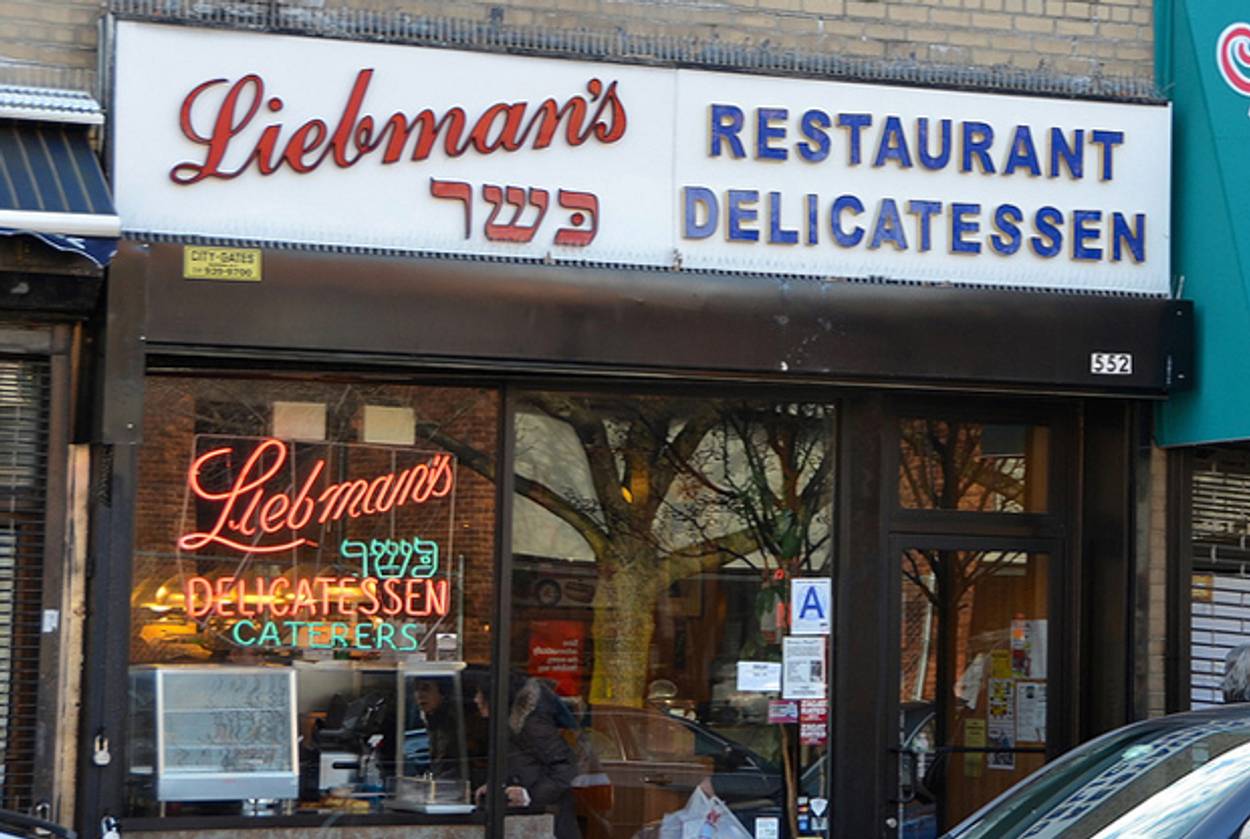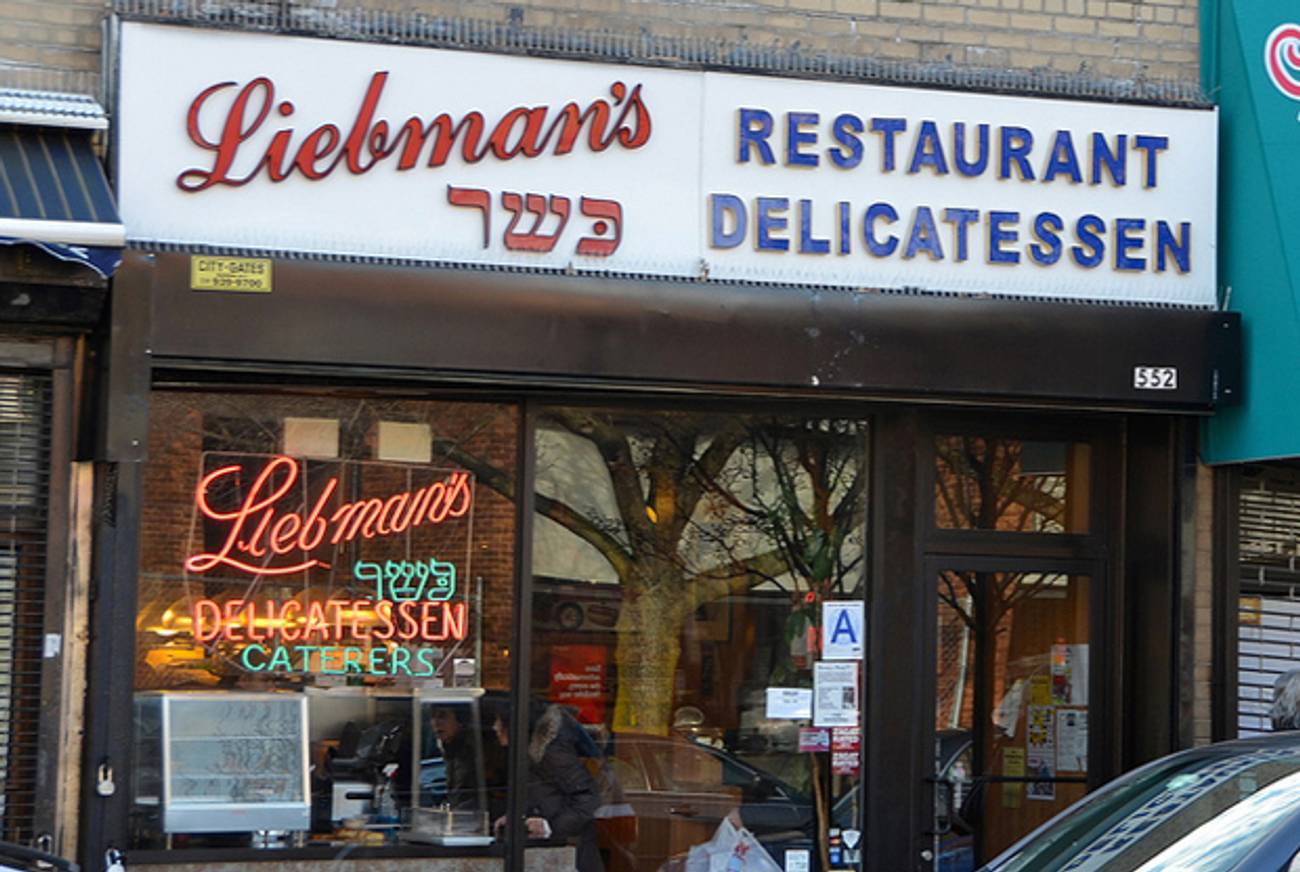The Bronx Kosher Deli That Could
Liebman’s Kosher Deli offers a no-frills experience—and diners eat it up




Tablet contributor Leah Koenig visits Bronx staple Liebman’s Kosher Delicatessen in this weekend’s New York Times, where she asks customers just what it is about the restaurant that’s kept them coming in for more than six decades.
The restaurant, which was opened in 1953 by Joseph Liebman, was once one of nearly 100 delis in the Bronx, now it’s one of two. The key to its longevity, Koenig suggests, is that instead of riding the tide of New York City’s “deli resurgence” and opting for newer, sleeker, and chicer, Liebman’s has kept it way, way old school. In fact, they’ve hardly changed anything about the place in the past half-century—and diners love it.
Its minimalism is part of the charm. “Eating at Liebman’s feels like a wonderful time warp,” said Lisa Weisinger Manne, 58, who grew up visiting her uncle’s deli in New Jersey.
You can read Koenig’s Times article about Liebman’s here.
Koenig recently wrote about the culinary roots of a different iconic deli, Zingerman’s in Ann Arbor, Mich. (“Even people living further afield have heard about Zingerman’s,” she wrote in Tablet this summer, “which has transformed over the last 32 years from a single storefront deli into an empire of nine interconnected businesses that attracts visitors from all over the world.”). In a tribute to Hungary’s rich Jewish—and culinary—history, Koenig explained, Zingerman’s recently began offering a variety of Hungarian-inspired dishes.
The delicatessen as we know it traces its lineage to many locales across Eastern and Central Europe. As David Sax wrote in Saveur magazine, “The foods of the shtetls were regional … and when European Jews came to America, that variety characterized the delicatessens they opened. You got pastrami at the Romanian delicatessens, frankfurters at the German ones, and blintzes from the Russians.” Hungary, with its hearty stews and kosher salamis, added its own flavors and spices, particularly paprika, to the deli table. And as one of Europe’s most vibrant Jewish communities, complete with a vintage kosher butcher shop and restaurants serving classic dishes, Budapest today can still offer visitors and residents a taste of what deli once was, in its original setting.
Just like Budapest, it seems, so too does Liebman’s Kosher Delicatessen offer diners in the Bronx a taste of deli at its best.
Stephanie Butnick is chief strategy officer of Tablet Magazine, co-founder of Tablet Studios, and a host of the Unorthodox podcast.